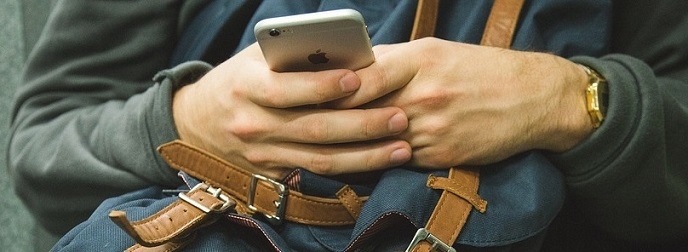The Digital Economy of Indonesia; What Makes Indonesia a Superb Playground for Companies & Investors in Online Business Activities?
The Internet has been one of the most revolutionary technologies in human history. It has made the world a much smaller place by revolutionizing communications. Internet has opened the doors to an enormous amount of information and data that are readily available by only a click or two (thereby completely changing the way people access and consume information).
Moreover, Internet users do not need to be consumers of what is already out there on the Internet, but can become content creators themselves on the World Wide Web (www). With the right content (whether it involves texts, music, photography or anything else) people can even become quite famous while sitting behind a computer only.
Social interaction has also been changed drastically by the Internet. Prior to the arrival of social media, people were largely limited to interaction with people they know in-person. However, through the Internet and the social media platforms we can now interact with basically anyone, anywhere, and at any time. This also explains why an increasing number of people meet their (future) life partner ‘online’.
But what is more relevant for this article is that Internet has also completely changed the way we do business. In the first 20 years of its existence, the Internet was mainly used by companies to build brand awareness and to communicate with (potential) customers and partners (for example through email). However, companies’ products and services still had to be bought or obtained by the consumer in the companies’ physical (offline) stores.

Today, however, the need for offline stores has fallen rapidly as sales and payments can be done online while goods can be transported to the home of the customer. Indeed, offline commerce has remained very dominant up to the present day. However, the landscape is changing quite rapidly (especially in Asia), reflected by the fact that (in recent years) we have seen the mushrooming of online sellers that do not have an offline store at all (and again, this especially occurs in Asia).
In many cases the Internet has made business much more efficient as time and space are not the conventional constraints that they were in the past. In the past, sending an invoice, making the payment, and delivering the product could take days, weeks, or even months. Today, however, an invoice can be sent (and received) instantly through email while the payment can be made (and received) instantly via mobile banking or Internet banking, thereby allowing for rapid delivery of the products or services to the consumer. This not only saves time, but it also saves money (which is good for both the business-owner and consumer).
A good example of efficiency in terms of money can be found in Indonesia. Many people in Indonesia sell home-made cookies, cakes, and meals through social media accounts to consumers. They bake and store the products at their homes, while they also sell the items from their homes. Hence, there is no need to buy or rent a physical outlet where consumers can purchase (and/or consume) the products. Moreover, there is no need to hire employees (or, at least, fewer employees) which allows the producer (who is also the end-seller in this case) to set relatively low prices for the products to the consumer.
[...]
This article discusses the following:
• How the Internet and smartphone revolutions have changed our lifestyles, habits and way of doing business. To illustrate this, we focus on how Indonesians have adapted to digital technology (in terms of both business and social interaction).
• The factors make Indonesia a superb playground for digital technology, including the big, young and tech-savvy population, urbanization, the expanding middle class (hence rising spending power), and infrastructure development that improves (Internet) connectivity.
• The need for business-owners to adopt (or adapt to) the latest digital technology in order to remain competitive amid rising competition from digital newcomers.
• The rapidly rising popularity of electronic wallets (e-wallets) in Indonesia to pay for goods and services. Offering e-wallets now seems to be a prerequisite for a tech startup company to become a unicorn or decacorn. But despite rapidly rising e-wallet penetration, electronic payments still constitute a very small percentage of all payments in Indonesia. Moreover, special attention is needed to raise Indonesians' awareness about the work of cybercriminals.
Read the full article in the January 2020 report. To purchase the report, please send an email to [email protected] or a WA text message to +62(0)8788.410.6944
Bahas
Silakan login atau berlangganan untuk mengomentari kolom ini

